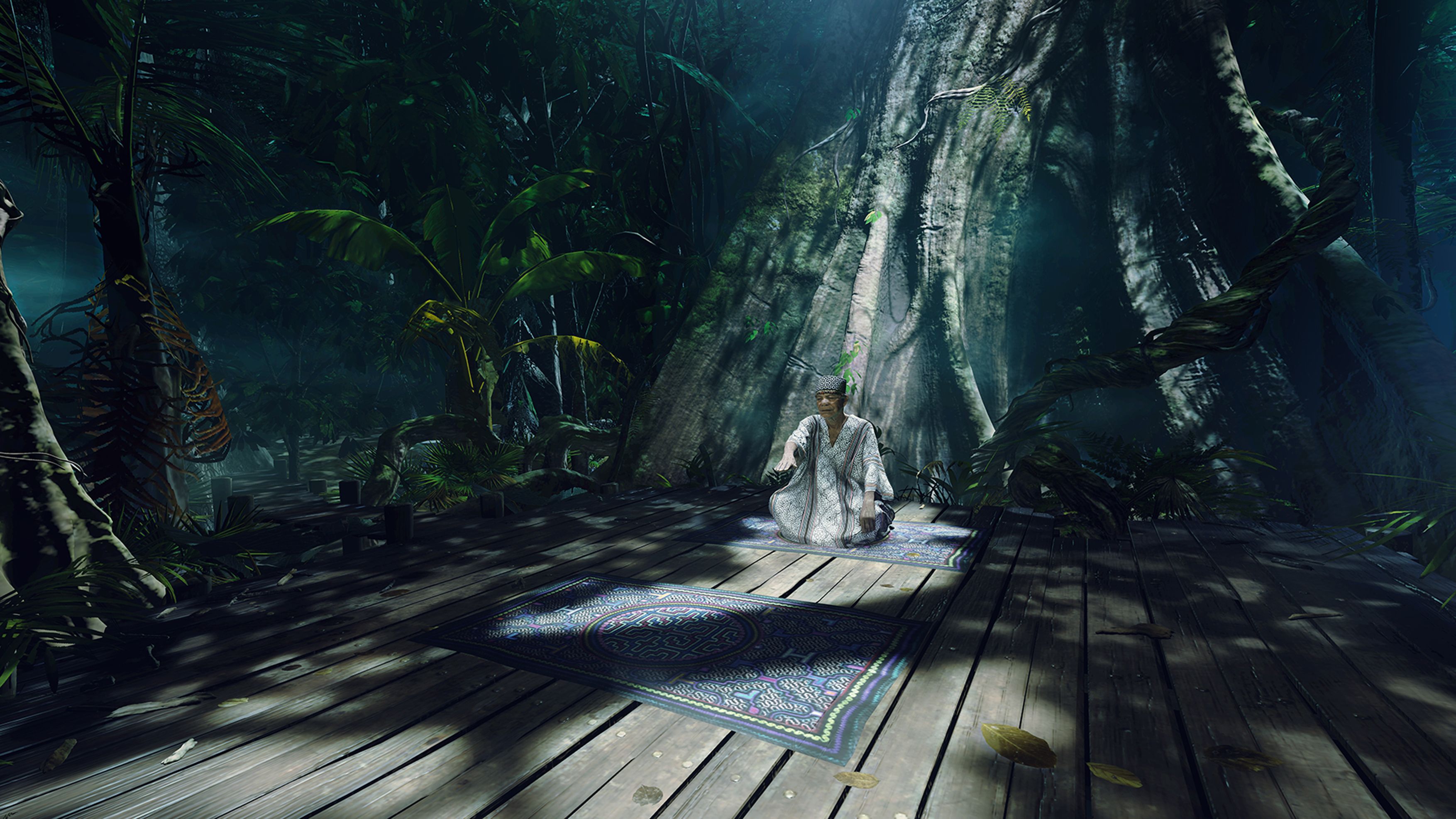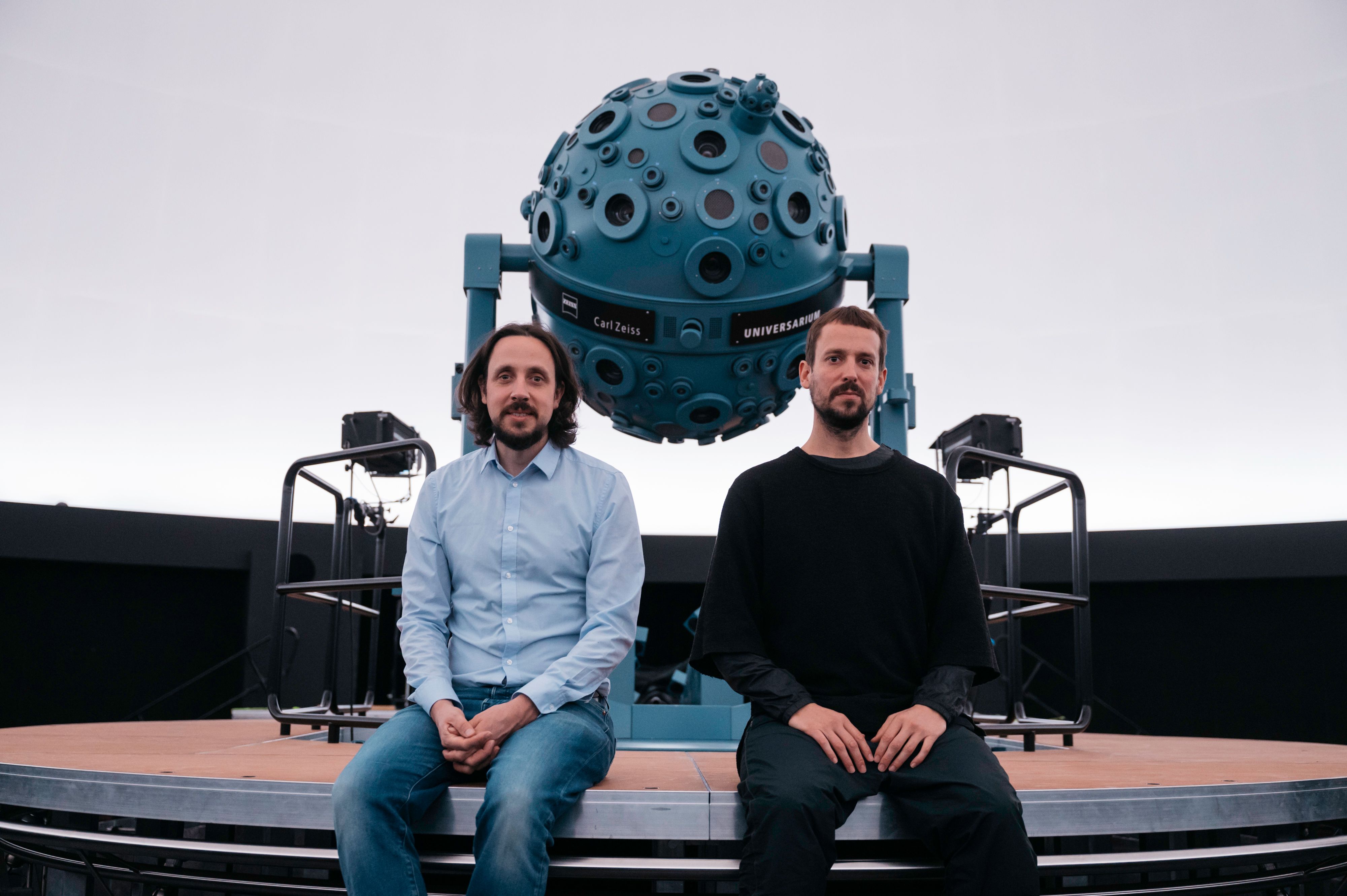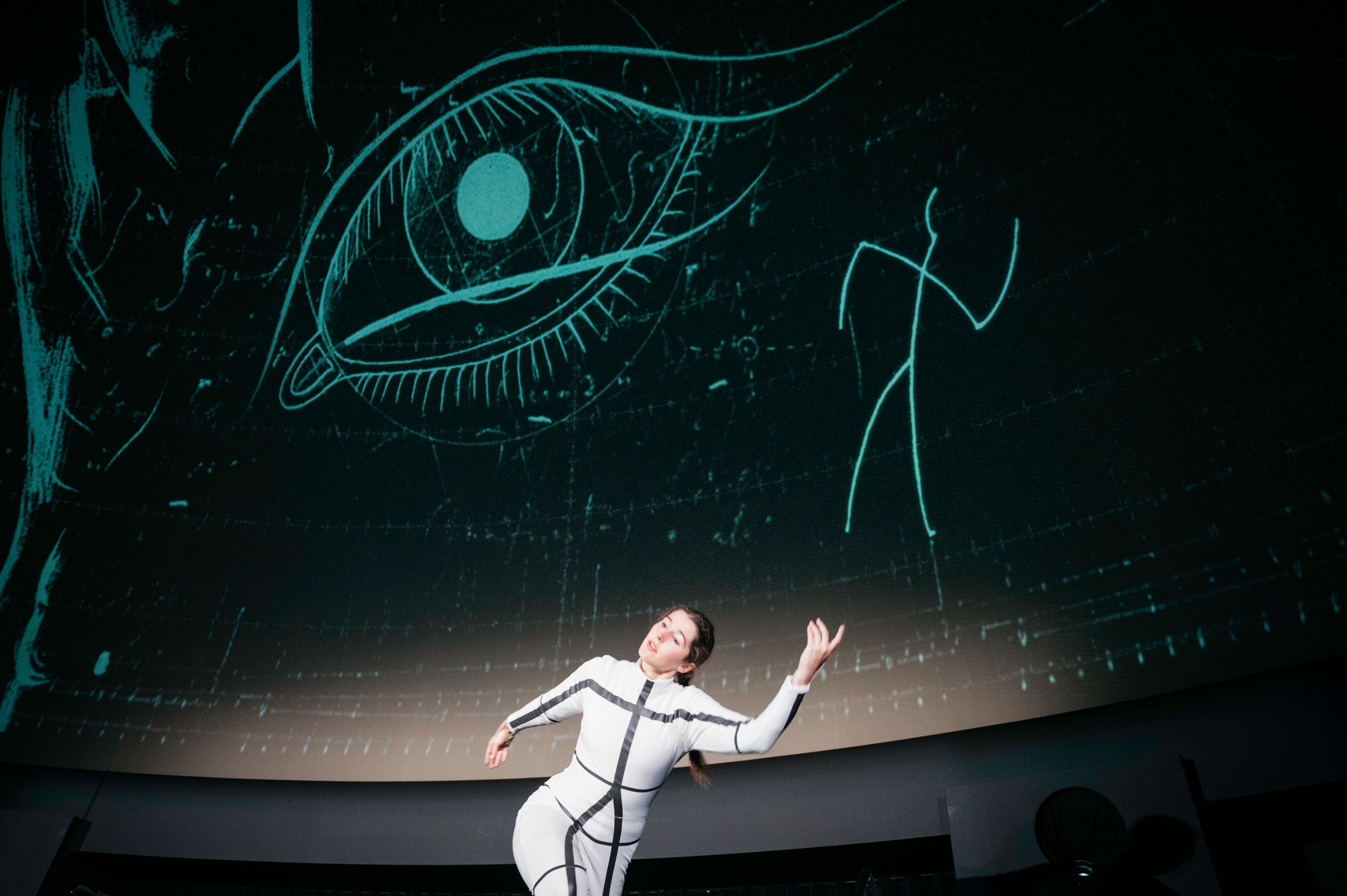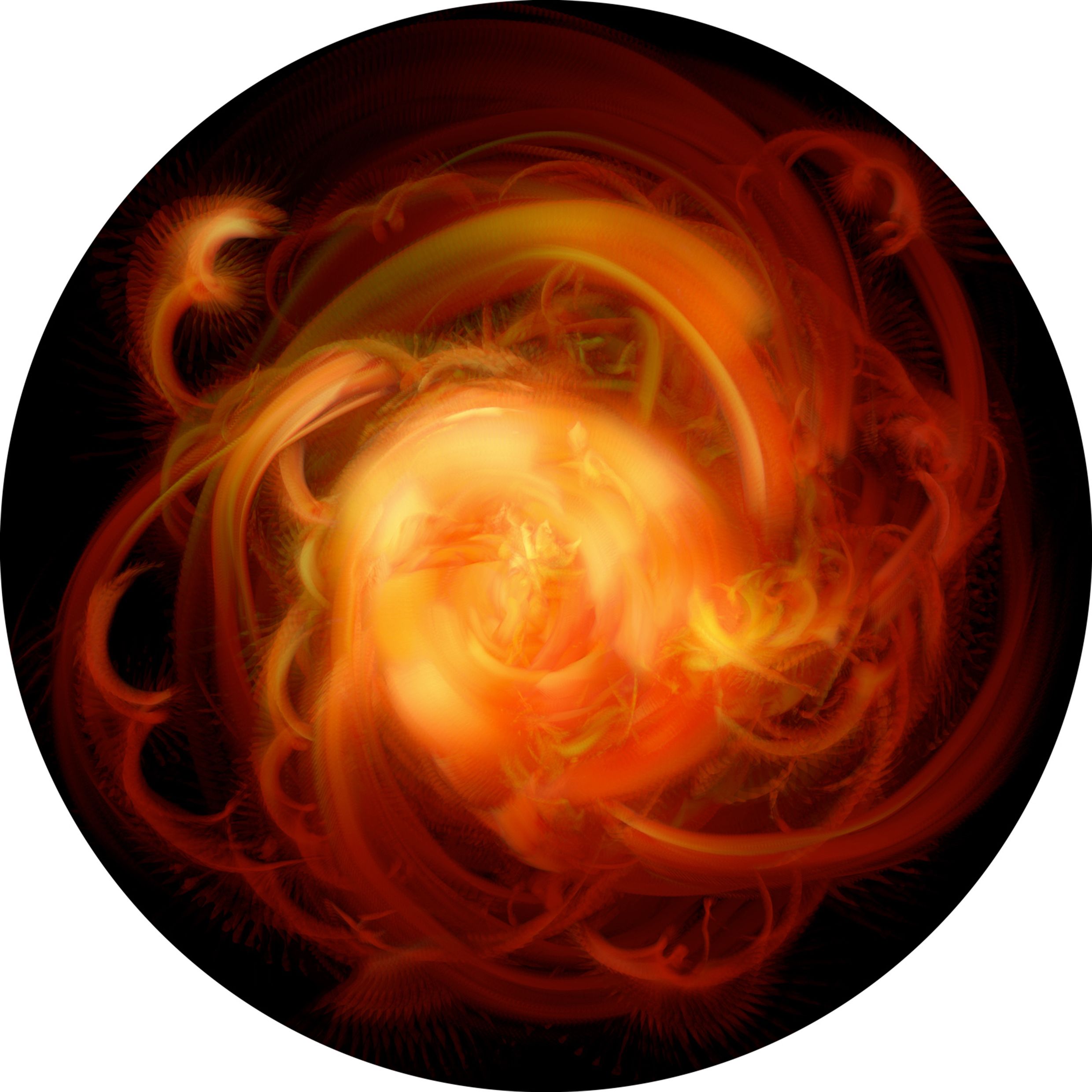Tobias Staab is co-founder and curator of Dive, a festival for digital art that took place for the second time at the Planetarium in Bochum and the Schauspielhaus Bochum in November 2021. We talked with Staab about the pull of immersion, its current relevance and the role of art.

Kosmik Journey

Kosmik Journey
"We live in a world that no longer knows any outside."
Immersion as a unifying element
How did Dive Fest emmerge?
Since 2018, I have been curating an exhibition space for media art underneath the Schauspielhaus Bochum. The space is called Oval Office. At that time, Trump had just come to power and we thought that we needed a place for alternative concepts in art. I worked with different artists, including Ulf Langheinrich. He told me about an immersive project for a planetarium. So we went to the planetarium in Bochum together and met Susanne Hüttemeister and Tobias Wiethoff there, who were totally open to experiments. That's how the planetarium became a place for immersive arts. Together with my co-curator Tobias Wiethoff, the vision for the Dive Festival was born.
Why is the planetarium an interesting location for an immersive arts festival?
Planetariums have been designed as immersive places. The first planetarium was built in Jena in 1924. The avant-gardes of the 20th century were keen to use this new medium. This is, if you like, the largest canvas that an artist can use. The artists of Bauhaus had many ideas and concepts, but that got a bit lost along the way. In the almost hundred years that the planetarium has existed, it has become more and more of an educational institution. It's all about the starry sky and school classes learn about astronomy. It was only rediscovered as an art venue a few years ago, especially through the virtual reality hype. VR enables holistic art experiences. The path from VR to the hemisphere of the planetarium and vice versa is not that far.
Your background is in the humanities, you currently work in theatre. Where does your enthusiasm for digital arts come from?
I had a bit of a strange career path. For a while I thought I was writing a PhD thesis and books, going to symposia and teaching. I had studied theatre studies and philosophy. But then I was asked by the Munich Kammerspiele if I want to become a dramaturge. Then I was at the theatre for a few years, but soon realised that conventional theatre with spoken words and people standing on stage pretending to be someone else is not really my world. After that I went to the Ruhrtriennale, that's how I came to the Ruhr. As an interdisciplinary, festival the Ruhrtriennale is much more open. That's how I started to get excited about digital art worlds and new aesthetics. But I don't believe in pigeonholes at all. Art becomes interesting when different disciplines try to realise something together. Immersion is a theme that also functions as a unifying element.

Tobias Wiethoff (left) & Tobias Staab (right) ©Daniel Sadrowski

Human and art figure in the sphere theatre ©Daniel Sadrowski

I AM ©Markus Selg & Rodrik Biersteker

SPIN ©Lucas Gutierrez & Robert Lippok

Strom
What is immersion for you?
Immersion exists on many different levels. If you read a book and at some point you no longer see the letters, but are sunk in the story, then the medium that provides the entrance virtually disappears. It's similar with other arts. Theatres did this early on by trying to completely darken the auditorium. In opera, the orchestra disappeared into the orchestra pit. They tried to generate this illusionary effect, the suction effect, through the architecture as well. In the meantime, immersion is desired on all levels. Advertising is trying to hijack this for itself. That's why immersive art ideally has two sides: one is the great experience, the holistic sensation, and the other is the criticism of immersion, which all too easily makes us forget what the frame is and accordingly has a manipulative dimension.
What makes immersion so relevant in our time?
This kind of involvement must also be reflected to a certain extent. We live in a world that no longer knows any outside. At the end of the 90s there was an advertisement for AOL with Boris Becker. He looked into a computer, then into the camera and said, "Oh, I'm in!" Back then it was an issue of how do you get in. Now it's the opposite. You only look up when you're out, when you don't have reception anymore. There is no longer this distinction between the virtual and analogue worlds; we are constantly sliding back and forth between the two.
Industry often glorifies technology. What role do the arts have here?
I think the arts must reflect, criticise and illuminate issues from different sides. But to reduce the arts to a critical stance is also wrong. Art is not politics, it doesn't have to do social work or fulfil a didactic mission. Otherwise art becomes boring very quickly. We live in a time when art always has to justify itself socio-politically in order to be relevant at all. But it's also about confrontation with new impressions, aesthetics and environments. That's why people like to sit in the planetarium and let themselves be enchanted. Nevertheless, if there is only enchantment, then we are relatively quickly in a shallow area of entertainment. Art moves in an in-between, I have the feeling that one does art an injustice if one leans too far in one direction or the other.
How do you rate the opportunities to immerse yourself in digital arts in the Ruhr region?
That's difficult to say. I started the Oval Office and the Dive Festival also because I felt there wasn't enough on offer. Of course there are some places that are great, where lots of people are doing stuff. But there wasn't the density that you probably have in a city like Berlin. That's why it was important to me to establish a place that continuously deals with digital arts. There are very few festivals like the Dive Festival in Germany. Where you think about immersion and digital arts in such different places with different perspectives.
Can you already tell us something about the programme of the upcoming Dive Festival?
We think dance and immersive art more together. We want to continue to put such a big emphasis on live art. So no pre-produced videos are to be played, as is usually the case in planetariums: we want to generate new things in real time.

